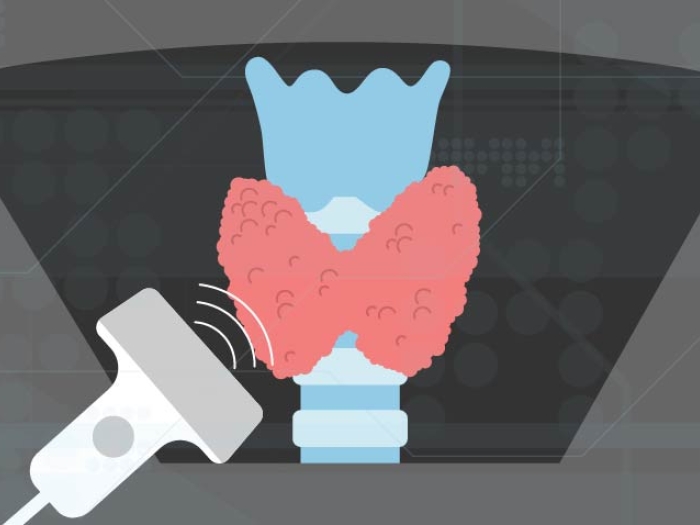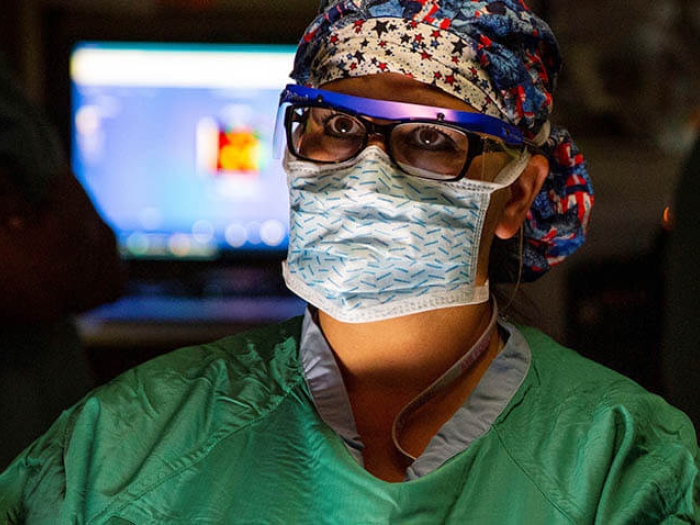A subset of patients known as maximizers consume a high level of medical resources without clear evidence of better outcomes, a study found.
10:30 AM
Author |

Not all patients feel the same way about medical treatment.
Some are "minimizers," preferring to see a doctor as little as possible and to give health issues a chance to resolve on their own. Others are "maximizers" who want to treat a disease to the fullest extent possible, even if doesn't make a big difference in the overall outcome.
Patient self-advocacy is important, and although a maximizing preference may be advantageous in many situations, new research led by the University of Michigan Rogel Cancer Center shows that, in the case of long-term surveillance of treated, low-risk thyroid cancer, these maximizers consume more health care resources — such as doctor visits and diagnostic imaging tests — which drive up costs without a clear improvement in outcomes. The research team's findings appear in the Journal of Clinical Oncology.
"Our previous research has shown an increasing use of diagnostic imaging during long-term follow-up of patients with low-risk thyroid cancers. This contributes to increasing health care costs and in most scenarios there is no evidence that these additional precautionary scans are improving patient survival," says senior study author Megan Haymart, M.D., an endocrinologist at Michigan Medicine.
LISTEN UP: Add the new Michigan Medicine News Break to your Alexa-enabled device, or subscribe to our daily updates on iTunes, Google Play and Stitcher.
"Our team's other studies have examined the role physicians can play in determining treatment for these low-risk patients. However, this is the first study to look at the contributions of patients with varying attitudes toward medical care — that is, differences between minimizers and maximizers," explains Haymart, the Nancy Wigginton Endocrinology Research Professor of Thyroid Cancer at the U-M Medical School.
The study sample — which drew on National Cancer Institute SEER registries from Georgia and Los Angeles — spanned nearly 2,200 people who were diagnosed with thyroid cancer in 2014 and 2015, but whose cancer had been treated effectively and who were currently disease-free. These patients were surveyed about their medical care over the prior year and about their attitudes about care, which allowed researchers to categorize them as minimizers, moderate maximizers or strong maximizers.
We believe that thyroid cancer can serve as a model for the impact of patient attitudes on medical resource use following surgery in other low-risk cancers, such as indolent prostate and breast cancers.Megan Haymart, M.D.
Strong maximizers were significantly more likely to have had four or more doctor's visits, two or more ultrasounds of the neck, one or more radioactive iodine scan and one or more additional imaging studies in the prior year the researchers found. This was true, even when factors like age, sex, race, cancer stage at diagnosis and additional medical conditions were taken into consideration.
"Our findings demonstrate that patients with a preference for maximal medical care did indeed tend to receive more follow-up care, including a greater number of doctor visits and imaging tests," says Haymart, who's also a member of the U-M Institute for Healthcare Policy & Innovation. "These results help to explain why we see significant differences in the management of low-risk thyroid cancer that isn't explained by disease-related factors."
Overall, 31.6% of patients were categorized as minimizers, 42.5% as moderate maximizers and 25.9% as strong maximizers.
Overtreatment comes not only with economic costs, but also medical costs, Haymart notes. Potential risks to patients include false positives, increased worry, unnecessary intensification of treatment, as well as potential side effects from more treatment, like change in voice and low calcium if the patient undergoes additional unnecessary surgery.
"We believe that thyroid cancer can serve as a model for the impact of patient attitudes on medical resource use following surgery in other low-risk cancers, such as indolent prostate and breast cancers," Haymart says.
MORE FROM THE LAB: Subscribe to our weekly newsletter
The takeaway for doctors may be to understand how significantly patient attitudes can influence the amount of health care resources these low-risk patients end up consuming, incurring not only financial costs but also posing health risks, says study first author Joshua Evron, M.D., a former trainee at U-M and now an assistant professor of medicine at the University of North Carolina, Chapel Hill.
"There's a tendency to think of cancer as this big bad thing that we just need to throw everything we have in our arsenal at," he says. "But that's not necessarily the case. In certain contexts, like these, less may indeed be more. In their discussions, doctors may be able to better help patients understand the potential benefits of a less intensive approach."
Paper cited: "Role of Patient Maximizing-Minimizing Preferences in Thyroid Cancer Surveillance," Journal of Clinical Oncology. DOI: 10.1200/JCO.19.01411
Additional authors: David Reyes-Gastelum, Mousumi Banerjee, Laura D. Scherer, Lauren P. Wallner, Ann S. Hamilton, Kevin C. Ward, Sarah T. Hawley, Brian J. Zikmund-Fisher
The research was supported by the National Cancer Institute (grant R01 CA201198).

Explore a variety of healthcare news & stories by visiting the Health Lab home page for more articles.

Department of Communication at Michigan Medicine
Want top health & research news weekly? Sign up for Health Lab’s newsletters today!





